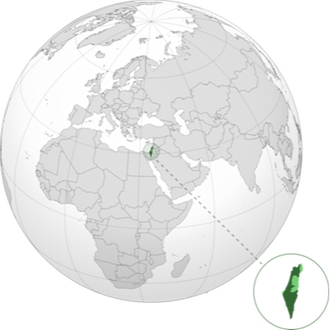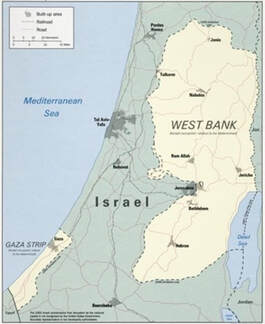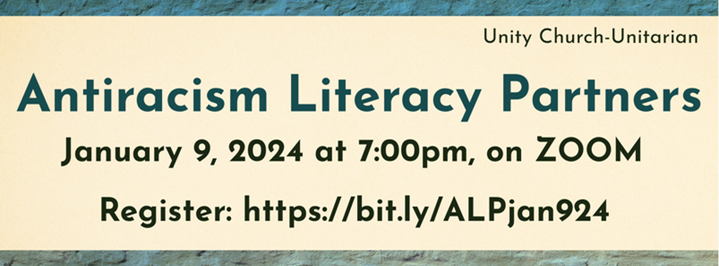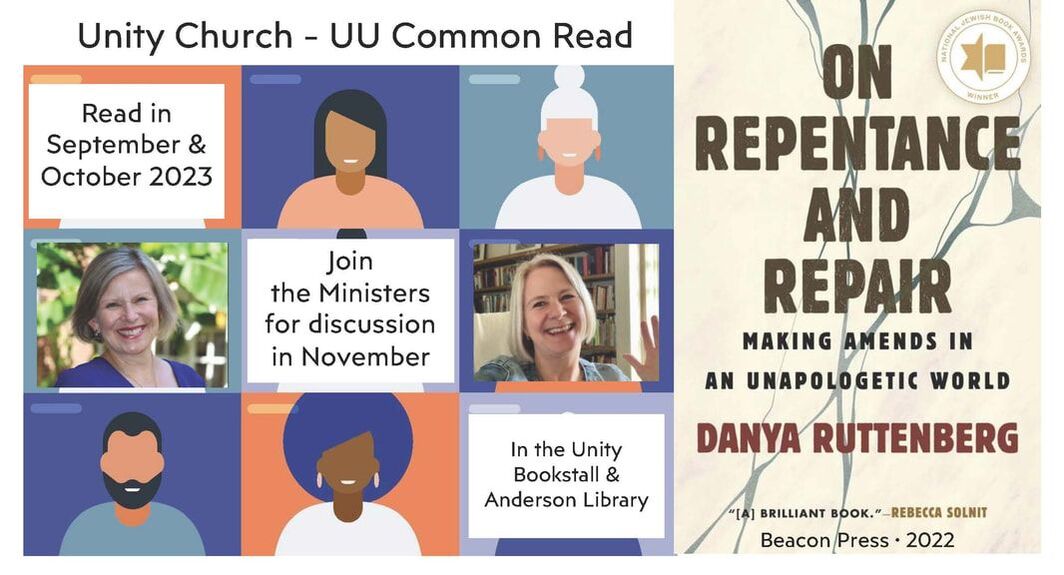|
Suki Sun, Beloved Community Communications Team 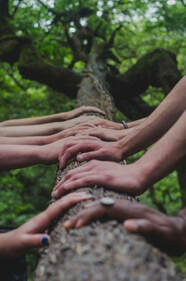 Who would have thought Transforming Conflict, the workshop led by Rev. Dr. Terasa Cooley on February 3, would be woven with so many different shapes of tenderness, lightness, and playfulness? The first big laugh burst in Parish Hall when one of the bullet points showed “No Return to ‘Normal.’” How many times have conflicts that I experienced arisen from my refusal to embrace the transforming potential of changes? In my way was the false brief that these changes served no chance as evolutional pivot points but only broken promises to “my good old days.” Especially in a group setting, even though I never say these words aloud — “We just don’t do that” or “We always do things like that” — I can no longer deny that these thoughts are exactly my go-to reactions when facing conflicts. Then, my tendency has been to cut the conflict short and walk away. Before this workshop, I always thought my aversion to conflict was deep-rooted, and I had plenty of reasons to justify it: I grew up in China where all kinds of “saving face” conversation strategies lubricate the harmony of the society; I am a Libra, a natural peace seeker, and a people pleaser. Dr. Terasa inspired a willingness in me to cultivate the required taste for the deep flavor of conflict. Perhaps the first step to uproot my bias against conflict is to normalize the conflict. When I learn to look deeper into the uniqueness of each person with what Dr. Terasa called “holy curiosity,” I can transform my uneasiness into openness while listening to different voices and learning something. There are no difficult people, only different people. There are no difficult conversations, only different conversations. Put another way, to normalize conflict is to normalize difference. And difference here is not something that needs to be adjusted, aligned, or fixed, but to be encouraged and celebrated. One of my favorite quotes from Dr. Terasa at the workshop was, “You are part of us not because you act like us.” Her famous saying, “I see you. I care about you. I want to learn from you,” was like a mantra, repeated several times during the workshop, and it resonated with me every time. Conflicts that I used to perceive as “difficult” are an invitation for me to practice deep listening and to build deep connections with others, even if they have different interests; sharing the interests of others is a profound learning experience. The interests of other people may interest me, too! In my own culture, the first character in Chinese for conflict 冲 also means “to splash amid the waterfall.” What a lively and poetic scene of natural force! Could conflicts be as normal as the ever-flowing water in nature? When meeting uneven territory, water creates more wonder than stagnation, like a waterfall with amazing dancing and singing. In this sense, conflicts especially latent conflicts, are vital signs that manifest energy and the dynamic of relationships and organizations. They are life-giving opportunities for me to adapt, change, and transform into something beyond my own small self. After all, what is a 100% conflict-free zone? A dead zone. Another memorable laugh happened in the workshop when Dr. Terasa jokingly described some people in conflicts as “highly amygdalated.” She explained that part of the amygdala in our brain elicits a simple black-and-white reaction: danger vs. no danger. Because it bypasses complex cogitations, the by-product is a false sense of urgency. In a societal conflict, not only do I see danger as losing and safety as winning, but also, I want to win now. Unfortunately, the amygdala-hijacked version of us always has the loudest voice speaking in ways that silence others, or stays silent when I need to speak up. That’s why building my amygdala awareness is so important. Once I notice my amygdala is activated, I can consciously bring back my authentic self by applying some soothing strategies like breathing out longer than breathing in, in a steady rhythm, and sending calming messages to my brain that I am in a much safer place than what my nervous system tells me. The whole workshop was packed with many strategies and tools for transforming conflicts, but I found that approaching with a beginner’s mind offered a fresh view of conflicts that allowed me to lean in and cherish the learning opportunity in each conflict. F. Scott Fitzgerald once said, “The test of a first-rate intelligence is the ability to hold two opposed ideas in the mind at the same time, and still retain the ability to function.” The biggest takeaway from the Transforming Conflict workshop was to “make complexity a friend.”
0 Comments
Unity Antiracism Literacy Partners Ask: What? When? Where in the World? Shelley Butler, Beloved Community Communications and Antiracism Literacy Partners (ALP) Teams With a swift end to the conflict in Israel and Gaza nowhere in sight (not to mention other violence around the world and in our own neighborhood), if you’re like me, then you’re having trouble saying, “Happy New Year,” to friends and family. I found myself wishing people a “more peaceful” or “happier” new year and receiving similar sentiments. Since October 7, 2023, I have been reading, watching, listening, debating, and learning about Israel, Hamas, Palestine, and the 17.37 sq. mile Gaza Strip, as I suspect have most of us. The question that often calls us to action looms: What can I do? An article by Rabbi Emily Cohen stood out to me, and her words have become my mantra, “I will not lose my compassion for all: Israeli and Palestinian, Arab and Jew. I have found myself for these last weeks living in the ‘and,’ and I want to invite you to live there with me.” We, on the Antiracism Literacy Partners (ALP) Team, invite you to live in the “and” with fellow Unity congregants by delving into questions more deeply in small group spiritual practice. So, what does that mean exactly? Join us on Tuesday, January 9, 2024, at 7:00pm on Zoom (register here) to find out more about the new resource being offered, “We Cannot Turn Away: Engaging on Israel and Palestine.” Then, you will be able to sign up for a small group to discuss these four questions:
You’ve likely watched unspeakable violence unfold; heard phrases like “from the river to the sea” and “settler colonialism”; wondered about the difference between Jews and Zionists, and the difference between Hamas, Hezbollah, and the Palestinian Authority; been informed about antisemitic and Islamophobic harassment and violence; been surprised to find trusted leaders, groups, and organizations siding with Israelis or Palestinians; and felt perplexed by sorting out right from wrong when both sides are engaged in war crimes. News outlets and especially social media abound in information and misinformation, understanding and misunderstanding. There is much to sort out. The ALP program can’t promise to answer all the questions, but we do offer a starting point. Unlike most other ALP groups, we’ll offer you a resource guide with articles, news stories, UUA statements, links to short films and podcasts, and as always, recommendations to learn more, instead of a single book or podcast. Rather than choosing sides, we encourage you to enter with an open heart and mind into the complexity of the 3000-year history of the area; how our faith is responding; and thoughts on where we might go from here, including building bridges in time of war. Several of the resources provided, as well as a guide to “key terms,” have been provided by the UUA for just this purpose of congregations engaging on Israel and Palestine. As we start this new year that seems so filled with uncertainty, I’d like to offer you the blessing given me by a fellow BC Communications Team member, “May the New Year bring you and all of us new challenges and a good measure of joy.” The Antiracism Literacy Partners (ALP) program is a group spiritual practice that seeks to embody the values, mission, and ends of Unity Church; and specifically, this ends statement: Create brave space for racial healing and dismantling dominant culture. Learn more about the Antiracism Literacy Partners program, and the five resources offered in the January session. Contact ALP Team Leader Becky Gonzalez-Campoy with questions: [email protected].
By Shelley Butler, Beloved Community Communications Team and Library-Bookstall Team A UU Common Read can take us on a powerful journey into what it means to be human and accountable in a world filled with both pain and joy. —Unitarian Universalist Association
A Unity friend told me recently that her husband was exhilarated by our congregation read book, On Repentance and Repair: Making Amends in an Unapologetic World by Danya Ruttenberg; that his copy was full of bookmarks and notes in the margin, and that he was planning to purchase the book for others in their family. This is not something you’d necessarily expect to hear about a book that teaches us in five steps to do the work of repentance personally and collectively, but we hope that his enthusiasm will inspire you and others to participate in the read and this work. Dismantling white supremacy and making reparations for the shame of slavery or reparations for stolen land and genocide of Native Americans often feels overwhelming. Even figuring out how to right a wrong against just one person we have harmed can provoke anxiety. But, as is quoted in On Repentance and Repair, “If you believe that you can do damage, believe that you can fix it. If you believe that you can do harm, believe that you can heal.” Let’s not let the enormity of what we need to do cut us off at the knees. This book, the opportunity to delve more deeply into it in an Antiracism Literacy Partners group, and the “Repentance and Repair in Our Lives and Relationships” discussions coming up at Unity in November provide us with the guidance to continue the antiracism and right relations work we’ve already started at Unity, but also support those of us who may be just beginning this work, step by step. In the book, Rabbi Ruttenberg outlines the path based on the work of 12th century-medieval Sephardic Jewish philosopher Moses ben Maimon, more commonly known as Maimonides, and deftly applies these principles to today. The first step is “naming and owning harm,” or confessing (our worship theme for October). Ruttenberg acknowledges the challenge, but also the tendency to minimize harm by making excuses and justifications. How often have we heard and even said, “But I didn’t mean to”? She writes, “Addressing harm is possible only when we bravely face the gap between the story we tell ourself — the one in which we’re the hero, fighting the good fight, doing our best, behaving responsibly and appropriately in every context — and the reality of our actions.” It may be true that our intentions are good and that we are doing our best, but that doesn’t negate harm we’ve caused or inherited nor the responsibility to make amends. The steps beyond confession — both public and private — include change, restitution, consequences, apologies, and making better choices; or in other words, transformation that leads to healing and a more just world. So many important questions are answered here: How do we handle harm when we see it around us? In an antiracism workshop at Unity, there was talk of weaponizing the traits of white supremacy culture listed by Tema Okum. What is the difference between calling out harm when we see it and weaponizing a tool that helps us understand it? What about the harm caused by the institutions, like Unity Church, or workplaces, schools, universities, or social groups; justice systems—policing, courts, prisons; and the nation? How do we hold ourselves and these larger arenas accountable, and what is our responsibility? Is national repentance, for example, possible; and can we learn from Germany and South Africa? Beyond accountability, how can we atone and make amends? Even as I write this, the questions loom large, and on my own, I could never answer them. But in a community such as ours that values truth, honest storytelling, and healing, and with resources, workshops, and discussions like the Unity-UU Common Read, maybe together we can summon the bravery to begin and the willingness to continue the work, and the faith that “on the other side of transformation is another more whole, more full, more free way of being, one that we can’t fully imagine from here.” Sounds a lot like a walk towards beloved community, doesn’t it? Won’t you join us? On Repentance and Repair: Making Amends in an Unapologetic World by Danya Ruttenberg. Beacon Press, 2022. In the Unity Bookstall (paperback, $18), and in the Anderson Library (202.2 R). Unity–UU Common Read Events: Repentance and Repair in Our Lives and Relationships Led by Rev. Kathleen Rolenz and Rev. Lara Cowtan
Antiracism Literacy Partners, Tuesday, December 5, 2023. Meet to learn about the program and sign up for a group to take a deeper dive into On Repentance and Repair. On Zoom, register today! |
Topics
All
Beloved Community ResourcesUnity Justice Database
Team Dynamics House of Intersectionality Anti-Racism Resources in the Unity Libraries Collection Creative Writers of Color in Unity Libraries The History of Race Relations and Unity Church, 1850-2005 Archives
July 2024
Beloved Community Staff TeamThe Beloved Community Staff Team (BCST) strengthens and coordinates Unity’s antiracism and multicultural work, and provides opportunities for congregants and the church to grow into greater intercultural competency. We help the congregation ground itself in the understanding of antiracism and multiculturalism as a core part of faith formation. We support Unity’s efforts to expand our collective capacity to imagine and build the Beloved Community. Here, we share the stories of this journey — the struggles, the questions, and the collaborations — both at Unity and in the wider world.
The current members of the Beloved Community Staff Team include Rev. Kathleen Rolenz, Rev. KP Hong, Rev. Lara Cowtan, Drew Danielson, Laura Park, Lia Rivamonte and Angela Wilcox. |
